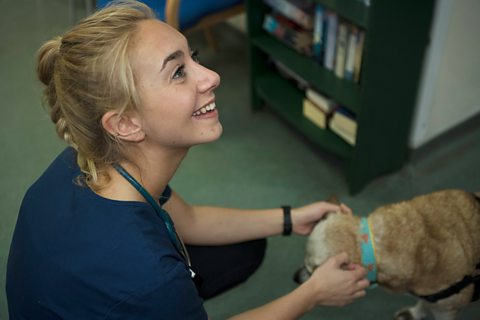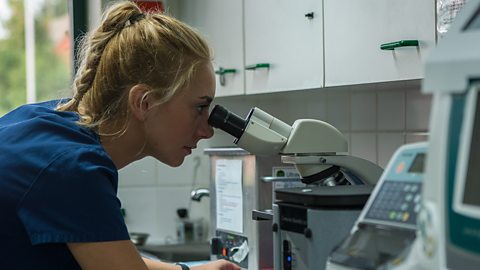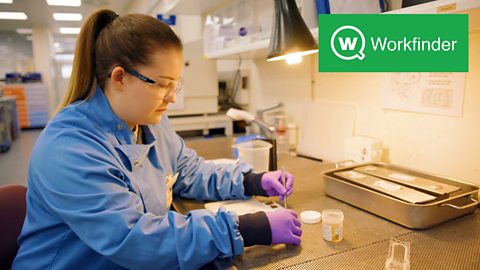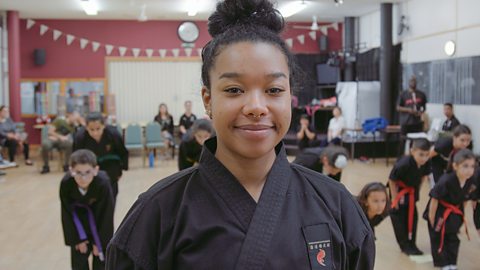
Meet Lucy, she's 23 and works at Oakley Veterinary Clinic in Reading. Find out more about her job as a vet. Part of our Bitesize world of work series.
What is your job?
I work at Oakley Veterinary Clinic where I help make your pets better when they are sick, and keep them healthy with medicines and sometimes surgery.

Qualifications
At school I took GCSE Maths, triple Science, English Language and Literature, German, Drama, Latin and History. At college I took A-levels in Biology, Chemistry and History, and an AS-level in Maths. Then at university I went on to study Veterinary Science, which is sometimes called Veterinary Medicine.

What inspires you?
Ever since I was very little I always knew I wanted to be a vet, from about four years old! I really liked Science at school. I love animals and people so my job is perfect for me because it includes all of these things. I enjoy getting to work with cats, dogs, guinea pigs, rabbits, hamsters, birds and reptiles.

Best thing about your job?
No one day is the same. I once had to treat a penguin who was feeling poorly and not eating its food. We did an X-ray and saw it had eaten some metal. Then we could help him!

Most kids go through a stage of wanting to be a vet. Some of us never grow out of it.
Top tips
Just keep going, and as soon as you can do some work experience. Not just in veterinary practices but in farms, kennels and stables. There are lots of different roles you can do that involve science and animals.


What to expect if you want to be a vet
- Vet average salary: Ā£30,000 to Ā£50,000 per year
- Vet typical working hours: 40 to 45 hours per week
What qualifications do you need to be a vet?
You'll need to complete a veterinary degree approved by the Royal College of Veterinary Surgeons (RCVS). Entry to courses is highly competitive. Full-time veterinary degrees usually take five to six years. You'll usually need five GCSEs at grades 9 to 4 (A* to C), or equivalent, including English, Maths and Science and three A-levels, or equivalent, including Biology and Chemistry. Alternatives to A-levels include taking a T-level in Animal Care and Management (England only, from Sept 2023), which is equivalent to three A-levels. Check with your course provider which alternative qualifications they accept. You could also volunteer with a local veterinary practice, a kennel or animal welfare centre, or with animal charities like the PDSA or RSPCA to get experience of handling different animals from small domestic pets to larger livestock.
Sources: LMI for All, National Careers Service, .
This information is a guide and is constantly changing. Please check the for the latest information and all the qualifications needed and the for more on T-levels.
For careers advice in all parts of the UK visit: , , and .


Find work experience placements with Workfinder.
Tips and advice
Help with interviews, writing a CV and all things work experience related.


Shola: trainee karate instructor. video
Shola uses her knowledge of the body in her role as a trainee karate instructor.

Khadija: first aider
Khadija uses her medical knowledge to teach young people first aid.

Rachel: dancer and choreographer. video
Rachel uses her knowledge of the body to teach people how to dance.
